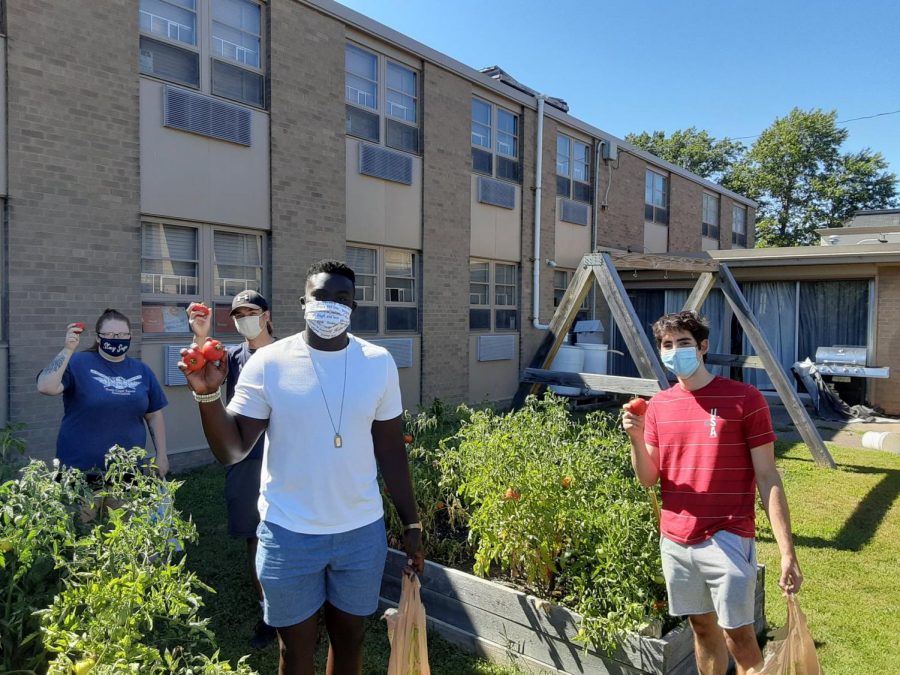Environmental ethics: Humanity’s role in nature
Philosophy course combines environment and moral choice to create new perspective
Gannon University Philosophy Department/Facebook
Alexis Dean (left), Ryan Cezdo, Marcel Deya and Nicholas Leone participate in harvesting 53 pounds of tomatoes and cabbages to donate to the St. Paul Cathedral food pantry. The harvest followed a lecture on food insecurity.
October 13, 2020
Environmental Ethics, a class taught by Aaron Kerr, Ph.D., discusses the role of humanity in the broad context of nature. The class is taught in Goodwill Garden, or occasionally inside West Hall’s Chapel.
Environmental Ethics fulfills the Philosophy 3 requirement in ethics. According to Kerr, the environment in relation to philosophy has changed the conversation surrounding the common good in today’s society.
“This has been done by moving from human-centered analysis of moral choice to an interrogation of the role of humanity in the broad context of nature; the value of nature, the elementals (water, air, earth) and ecosystems as a whole,” Kerr said.
Kerr also said that the class gives students a new perspective with which they can view the world and their relation to it.
“The students will gain new lenses for evaluating natural and cultural goods, and be equipped with what Pope Francis has called new ‘ecological virtues,’” Kerr said. “They will also be more confident in articulating the value of nature in both urban and rural environments and in their future careers.”
According to Nichole Sommers, a junior physician assistant major, the structure of the class focuses on group discussion, so students can voice their own opinions and work through current issues with classmates.
“Each student is able to give their own insight into the philosophical aspects of nature and how they view the value of objects in nature,” Sommers said. “We learn from one another and can use ideas from our peers to advance our own insight for further discussions.”
Sommers also said that the class learns about environmental ethics through service.
“We also learn about nature through harvesting tomatoes in Goodwill Garden to donate to St. Paul’s Soup Kitchen on Fridays,” Sommers said. “We can help sustain our community through crops we grow and learn the benefits of this type of environment in an urban environment, especially in a food desert like Erie.”
Environmental Ethics is an important class in relation to the world and community that Gannon students are part of, according to Ryan Cedzo, a senior mathematics major.
“In a world where progress and economic success rule the land, it is important to understand the tradeoffs of an industrialized society,” Cedzo said.
“In Dr. Kerr’s class, we learn and discuss key concepts related to understanding how to live a more environmentally conscious and introspective life. With current environmental threats looming, such as climate change, depletion of natural resources and mass pollution, these ideas need to be shared and deliberated to ensure, as a community, we take the most appropriate path forward.”
Cedzo also said that Environmental Ethics is different from other classes that are major specific and oriented around a particular career goal. Environmental Ethics is applicable to all majors, as it focuses on the broader community and individuals’ effects on that community.
“We are taught not only about basic environmental principles, but also how to think, examine and question,” Cedzo said. “The class has transformed us into better thinkers as well as better doers, striving to help improve the environment through both careful thought and altruistic action.”
ANNA MALESIEWSKI






